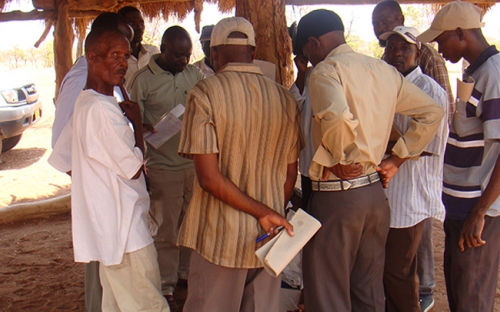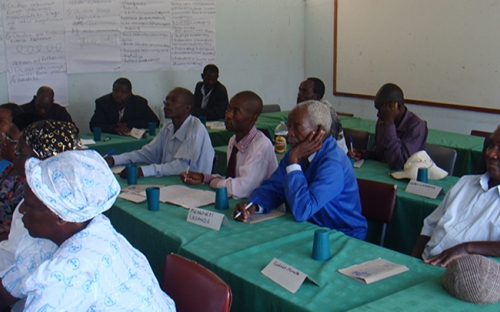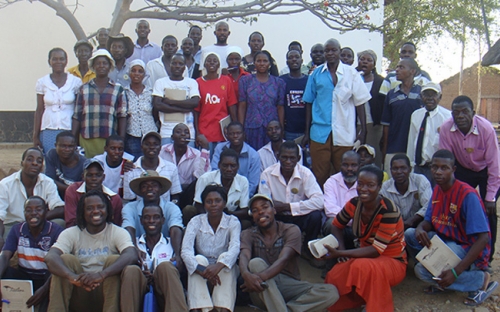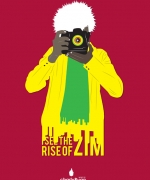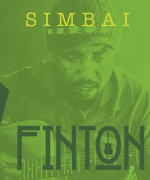Future of Traditional Leaders in Zimbabwe
Zimbabwe has state lands which the government is responsible for and communal lands in rural areas where traditional leaders are responsible. These traditional leaders include the Chief at the top of the hierarchy followed by the Headman then Sabhuku. Traditional leadership is appointed according to lineage and is usually for life. With more than 6 million people living in rural Zimbabwe, traditional leadership still plays an important role. Sabhuku is a chairman of the Village Development Committee (VIDCO). The committee has a vice chair, secretary, treasurer and 3 other members. Sabhuku has a seat in The Ward Development Committee (WADCO) with WADCO being the greater area. They also have village head badges.
The main responsibility of a Sabhuku include; maintenance of the traditions and culture of the Zimbabwean people, wellbeing of the villagers, peace and stability, managing natural resources and promoting development in the rural community. Sabhuku is required to collect a development levy tax of $2/year/household from villagers. After collecting, 10% is for his/her efforts making Sabhuku unpopular. They also get $20 per month from government. In reality 90% is given to the Rural District Council (RDC) to safe keep and is then reinvested back into the community through development projects initiated by the community. Basically the $2 is an incentive for villagers to contribute to the development of their own area. Some villagers still refuse to pay causing tensions and a halt on development. Some say they cannot afford it, others say they don’t see the benefit.
Maintaining our traditions and cultures is an important role but with the effects Colonialism and Christianity in Zimbabwe they are under threat. Sabhuku is usually at the centre of ceremonial rituals (e.g. kurova guwa) which may involve praying to the ancestor, brewing and drinking of beer. But with most villagers now being Christians they are refusing to participate in these ceremonies, putting the future role of Sabhuku in these ceremonies to question.
In the olden days Sabhuku had the power to distribute land to those who needed it but now under the Traditional Leadership Act they can only make recommendations to the RDC through the councillor, even Chiefs cannot give land according to the Act. But this is in theory because on the ground traditional leaders are giving out land out of ignorance of clearly ignoring the Act. Most do not even have a copy of the Traditional Leadership Act and are still using the old traditional system where they are allowed to give land. In some cases maSambuku are receiving cash or heads of cattle in exchange for land, sometimes they are giving land in areas which are not suitable for the people or the environment (River Banks, National Parks).
An example is Angwa which boarders a national park along the Zambezi where maSabhuku gave away land which was under the national park. Residents went on to build their homes only to be threatened with eviction today. Another example is Dema Growth Point in Chitungwiza where communal land meets urban land, urban residents paid MaSabhuku to give them land to build their city homes avoiding $6000 they would pay for a stand from the City Council. The Council has since announced these houses are not recognised and may be destroyed. If this happened it will leave people homeless after investing into building these city homes. But at the end of the day they took advantage of being on the fringes of urban and rural land and used the old system of land distribution over the new system.
Councillors are part of the new system and all development goes through the RDC via the Councillor further diminishing Sabhuku’s role. The role of Sabhuku and that of the Councillor are clearly stated in the Traditional Leadership Act but power struggles are not avoided with Sabhuku saying to the Councillor “I am your traditional leader, so by tradition you must listen to me” and Councillor saying “I am your democratically elected leader who was chosen by the people”.
As time passes I feel MaSabhuku and the other traditional leaders are slowly losing their influence in rural communities. In some areas MaSabhuku are too old and still do things the old way, some of them cannot even read or write. This does not benefit the village as old ways can hold back development. If a village has a bad Sabhuku they are stuck with him for life. But after meeting a lot of maSabhuku and talking with them they are still an important element in rural villages. They bring the villages together and spearhead development. In most cases they are listened to by their villagers and they do keep order in rural areas. Zimbabweans cannot forget their traditional and cultural ways because they define us. I believe that any country with no traditions and cultures or has adopted from elsewhere has no identity. Traditional leaders need to be trained and educate on good leadership and included in the new system of working together with the RDC and the Councillors for the development of our rural areas, as well as preservation of our tradition and culture. Time and future Government plans will tell us the future of our traditional Leaders.

